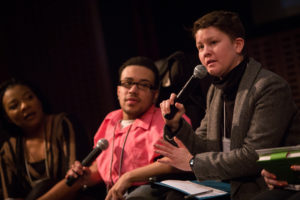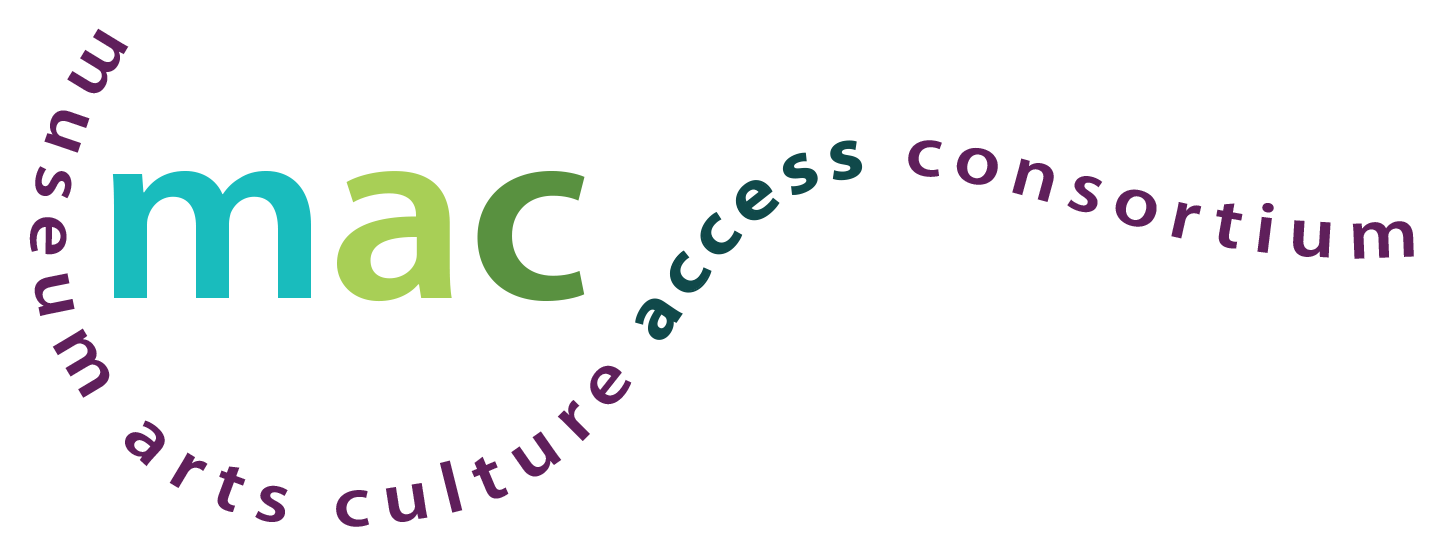29 Jun Meet Our Grants! Supporting Transitions

MAC Conference © Jessica Bal
Project Leader: Aliza Greenberg
Project Manager: Arielle Lever
Join MAC and the Supporting Transitions team for our Inclusive and Accessible Employment Series through the month of July!
More information and link to register: https://www.eventbrite.com/e/inclusive-and-accessible-employment-series-tickets-157956296535
Announcing the Opening Panel: Confronting Ableism in Cultural Employment
Rebecca Cokley, Program Officer, The Ford Foundation and Disability Rights Activist
Morénike Giwa Onaiwu, educator, writer, public speaker, parent, and global advocate
Joselia Hughes, artist and writer
Kirsten Sweeney, Education & Access Coordinator, Alliance of Resident Theatres/New York (A.R.T./New York)
Moderated by Miranda Hoffner, Associate Director, Accessibility and Guest Services, Lincoln Center for the Performing Arts
The Supporting Transitions project, now entering its 7th year, is dedicated to increasing cultural opportunities for adults with autism, developmental, and intellectual disabilities. While our work has focused on this group, we believe in cross-disability solidarity and a cohesive, collaborative disability community. Our work brings together cultural organizations, disability service providers, disabled individuals, parents, and advocates to create more employment opportunities in the cultural sector, more recreation and social opportunities, and more opportunities for skill development in the areas that interest our partners. We have a robust internship program, a host of other career development opportunities including our Cultural Careers Course in partnership with the City University of New York, and a thriving network that meets monthly to move these goals forward and learn together.
This past year we moved all our programming online and saw that there were many benefits to this new environment. Not only did it increase the number of people who could access our programs, removing geographic barriers as well as access barriers, it also allowed us to do more without the constraints of finding space in New York City. We recognize the need for both in-person and virtual programming and will be planning for multiple options in the future.
This fall we will pilot a Self Advocacy Corps to train self-advocates for consulting work in cultural organizations. We continue to learn at our network meetings about the needs of the community and design programs to meet those needs. We have seen such a commitment from cultural organizations to becoming more inclusive and accessible in both their programming and their employment practice. We are hopeful that the next year will bring many more opportunities. We hope to see cultural organizations that are run by disabled people at all levels and reflect diverse, disabled audiences and we are thrilled at the commitment to this vision that we have seen thus far.

Sorry, the comment form is closed at this time.